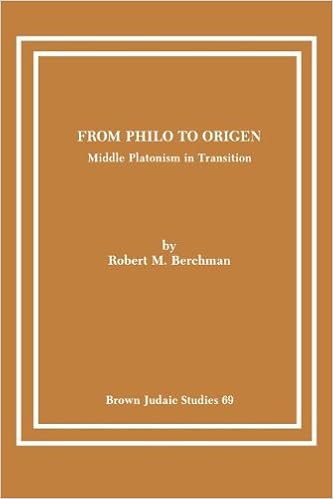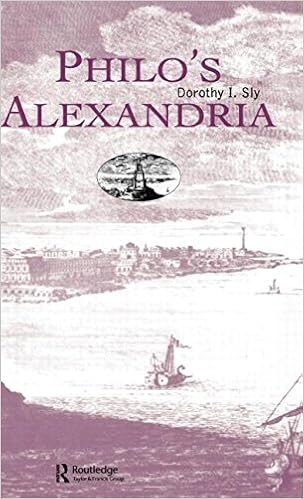Wednesday, November 21, 2018
On "The Nameless City" by H. P. Lovecraft (5032 words) ****
Here a man goes scaling into an ancient cavernous city whose history is described in other Lovecraft tales. As with so many of Lovecraft's stories, the man is eventually nearly torn apart by his encounter. But the descriptions of this odd civilization and the caverns along the way are wonderfully baroque. Read the story here.
Labels:
5000+ words,
Four-Star Stories,
H. P. Lovecraft,
Stories
On "At the Origins of Christian Worship" by Larry W. Hurtado ****
Based on a series of lectures, the short book is a very readable summary of many of the themes that extend throughout Hurtado's work. The main goal of the book is to explore what worship was like near the beginning of the Christian faith.
Hurtado starts his book by looking at paganism as it would have existed in the day and how that would have impacted Christian worship. The gist of it is that a Christian of Gentile extraction would have had a difficult time in society, because its social structure was largely based around pagan cults. Want to share a meal? You'll do that at the temple--or in rarer cases, at rich person's house (though in a crowd of ten at most)--generally in honor of a god. Being Christian involved breaking away from much of this social structure.
Next, Hurtado looks at how Christians actually worshipped, insofar as what they received in exchange for their conversion. Many churches met in homes and featured only a small number of congregants, so the experience was intimate--and it often featured food. Social distinctions were largely removed. There was also the promise of a coming utopian age of which Christians had a foretaste.
Hurtado turns next to the worship pattern insofar as the nature of God is concerned. He denotes that worship was largely binitarian--focused on Jesus and the Father as objects of veneration. The Spirit was certainly something of importance, but it was not an object of worship. Christians still believed themselves monotheists, as the Son was seen as the expression of the Father.
In the final chapter, Hurtado turns to contemporary worship and discusses how the early history/pattern of worship might instruct Christians today in their own practice.
Hurtado starts his book by looking at paganism as it would have existed in the day and how that would have impacted Christian worship. The gist of it is that a Christian of Gentile extraction would have had a difficult time in society, because its social structure was largely based around pagan cults. Want to share a meal? You'll do that at the temple--or in rarer cases, at rich person's house (though in a crowd of ten at most)--generally in honor of a god. Being Christian involved breaking away from much of this social structure.
Next, Hurtado looks at how Christians actually worshipped, insofar as what they received in exchange for their conversion. Many churches met in homes and featured only a small number of congregants, so the experience was intimate--and it often featured food. Social distinctions were largely removed. There was also the promise of a coming utopian age of which Christians had a foretaste.
Hurtado turns next to the worship pattern insofar as the nature of God is concerned. He denotes that worship was largely binitarian--focused on Jesus and the Father as objects of veneration. The Spirit was certainly something of importance, but it was not an object of worship. Christians still believed themselves monotheists, as the Son was seen as the expression of the Father.
In the final chapter, Hurtado turns to contemporary worship and discusses how the early history/pattern of worship might instruct Christians today in their own practice.
Thursday, November 15, 2018
On "The End of the World and Karate" by Al Dixon (1947 words) ****
What I like so much about this strange little story is the
seeming randomness of it and the attitude the characters convey to one another.
Sure, it's a story in which nothing much seems to be happening, but then
there's this whole talk of UFOs and of Kenny the foot stomper and of
highjackers--one never knows where the story is going to go. Read it here at
Hobart.
Labels:
1000+ words,
Al Dixon,
Four-Star Stories,
Hobart,
Stories
On "From Philo to Origen" by Robert M. Berchman **
This book is little more than a photostat of a dissertation. As such, it's double-spaced and shrunk down to fit a six-by-nine binding, which makes for difficult reading. That's too bad in some ways, as what Berchman has to say is important and useful. As the title suggests, Berchman traces through the influence of Plato from Philo to Origen, in the period known as Middle Platonism, one in which both the Jewish religion and the Christian were coming into being. Alas, it is not a book for casual readers or even mainstream readers; that one is still to be written. This is one for the scholars, preferably ones who know Greek and Latin, since Berchman often quotes from the vernacular without translation.
I would split the book into three main parts, with the first two being split into three parts each and the last part being split into two. The first section discusses conceptions of God, first in Philo, then in Clement of Alexandria, and finally in Origen. The gist of it is that all three, to some extent, apply Platonic ideas to Biblical concepts and to their beliefs about who God is and how his creation came about. Most pertinent here is Philo's dialogue Timaeus. God the Father, as First Principle, has no direct contact with the physical; his Logos, his reason and mind, is begotten and creates the things of physical substance. Or something like that. This was not easy reading.
The second section discusses ideas about knowledge--again in Philo, Clement, and Origen. The basic premise is that they write in Scripture as the ultimate form of knowledge, which goes beyond that which can be gained by physical senses to that which is the mind of God. Another short section discusses rhetoric--and how their use of it was Platonic.
Finally, the last section of the book provides a long excerpt from Origen's Periarchon, after which the author analyzes it to show how Origen is actually arguing against Stoic concepts of knowledge and of God in favor of Platonic concepts, as based within scripture.
Labels:
Books,
Early Christianity,
Nonfiction,
Robert M. Berchman
Saturday, November 3, 2018
On "The Moon-Bog" by H. P. Lovecraft (3421 words) ****
This is what happens when a man named Denys Bary decides that the legends about an Irish bog are poppycock and in the name of progress and development decides to drain it. Campfire legends are made of this stuff. Read the story here.
Labels:
3000+ words,
Four-Star Stories,
H. P. Lovecraft,
Stories
On "Philo's Alexandria" by Dorothy Sly ****
This highly accessible book about Alexandria in the first century of the Common Era focuses on Philo's observations about the city and how those speak to both his thoughts and to the character of the city itself. It is, in equal ways, about each.
Philo was a Jewish philosopher/thinker of the time who was also heavily influenced by the Greek culture around him. In many ways, he was focused on proving Hebrew culture as every bit the equal of Greek culture if not superior to it, making such well-bandied (at the time) claims as that much of Greek philosophy stemmed from Mosaic law and custom or from a common divine source.
Sly is a feminist whose previous work focused on Philo's beliefs about women, and that finds a lot of emphasis here. Women don't fare well in Philo's texts, since he believes they are inferior to men and should largely be confined to the private arena. It is when they take a hand in politics or try to influence men that history goes awry, in Philo's view. He writes badly women like Cleopatra who have much to do with the social order.
Various chapters deal with Alexandria's marketplace, medicine, politics, and history.
About the only misstep in the book is that Sly chooses to end the book with the account of the Jewish pogrom of 38 and chooses to start it with a paraphrasing of Philo's thought, writing as if she were Philo. Ending the book as she does is not necessarily wrong, but it might have been a more compelling opening; the paraphrase, at least for me, seemed to drop us into the realm of fiction and made me at first rue choosing this book as one about these two subjects.
Philo was a Jewish philosopher/thinker of the time who was also heavily influenced by the Greek culture around him. In many ways, he was focused on proving Hebrew culture as every bit the equal of Greek culture if not superior to it, making such well-bandied (at the time) claims as that much of Greek philosophy stemmed from Mosaic law and custom or from a common divine source.
Sly is a feminist whose previous work focused on Philo's beliefs about women, and that finds a lot of emphasis here. Women don't fare well in Philo's texts, since he believes they are inferior to men and should largely be confined to the private arena. It is when they take a hand in politics or try to influence men that history goes awry, in Philo's view. He writes badly women like Cleopatra who have much to do with the social order.
Various chapters deal with Alexandria's marketplace, medicine, politics, and history.
About the only misstep in the book is that Sly chooses to end the book with the account of the Jewish pogrom of 38 and chooses to start it with a paraphrasing of Philo's thought, writing as if she were Philo. Ending the book as she does is not necessarily wrong, but it might have been a more compelling opening; the paraphrase, at least for me, seemed to drop us into the realm of fiction and made me at first rue choosing this book as one about these two subjects.
Labels:
Books,
Dorothy Sly,
Early Christianity,
Four-Star Nonfiction,
Nonfiction
Subscribe to:
Comments (Atom)








